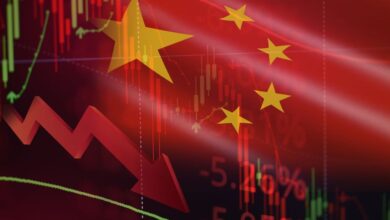China’s AI Ambitions Thrive Amid Global Tech Tensions

$BABA, $SPOT
In the competitive landscape of global technology, artificial intelligence (AI) development has emerged as a crucial focal point of innovation. Despite facing significant trade restrictions from the U.S., China has not only maintained but accelerated its AI capabilities, demonstrating resilience and strategic foresight. Both Chinese tech giants and startups are making noteworthy advancements in AI, effectively navigating barriers to access advanced chips and Western-developed AI models.
Baidu (NASDAQ:BIDU), a prominent player in China’s search engine market, recently launched its AI model, Ernie 4.0. Introduced in October, Ernie 4.0 is designed to tackle complex questions and generate coherent responses, positioning it as a strong competitor to GPT-4. During the Baidu Create 2018 event in Beijing, CEO Robin Li highlighted the model’s competitive advantages.
To further enhance its technological offerings, Baidu plans to manufacture its AI chip, Kunlun 3, which will bolster its hardware capabilities in support of its software innovations. Similarly, Alibaba Cloud (NYSE:BABA)
has made strides with the introduction of its large language model, Qwen 2, in June. This model has excelled in various benchmarks, surpassing other leading models in areas such as language comprehension and coding.
Alibaba Cloud’s AI advancements extend beyond linguistic capabilities; the recent release of the Qwen 2.5 model series and a text-to-video model within the Tongyi Wanxiang family underscores its ambition in AI-driven multimedia content creation. The competitive landscape in China’s AI sector is further enriched by players like ByteDance and Tencent. ByteDance, known for TikTok, has launched its AI-powered chatbot, Doubao, which has outperformed Baidu’s Ernie Bot in downloads and active users on iOS platforms.
Tencent’s introduction of its foundation model, Hunyuan, showcases its strengths in generating images and text, catering to enterprise-level needs with robust Chinese language processing and logical reasoning capabilities. Emerging startups such as Moonshot AI and MiniMax are also making their mark. Moonshot AI has developed innovative products like the role-play chat app Ohai and the music video generator Noisee, while MiniMax’s entry into the U.S. market with its AI character chatbot, Talkie, illustrates the global aspirations of Chinese AI startups.
As these companies continue to push the boundaries of innovation and expand their technological capabilities, the global tech landscape remains dynamic and competitive. The ongoing developments in AI across different markets emphasize the strategic importance of continuous innovation and adaptability in maintaining a competitive edge within the rapidly evolving tech industry.
**DISCLAIMER: THIS CONTENT IS FOR INFORMATIONAL PURPOSES ONLY AND SHOULD NOT BE INTERPRETED AS INVESTMENT ADVICE. INVESTING INVOLVES RISK, INCLUDING THE POTENTIAL LOSS OF PRINCIPAL. READERS ARE ENCOURAGED TO CONDUCT THEIR OWN RESEARCH AND CONSULT WITH A QUALIFIED FINANCIAL ADVISOR BEFORE MAKING ANY INVESTMENT DECISIONS.**


